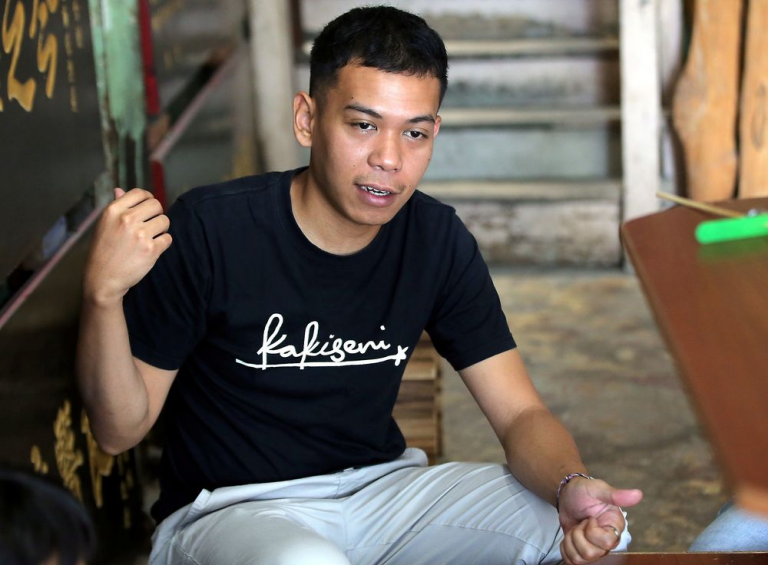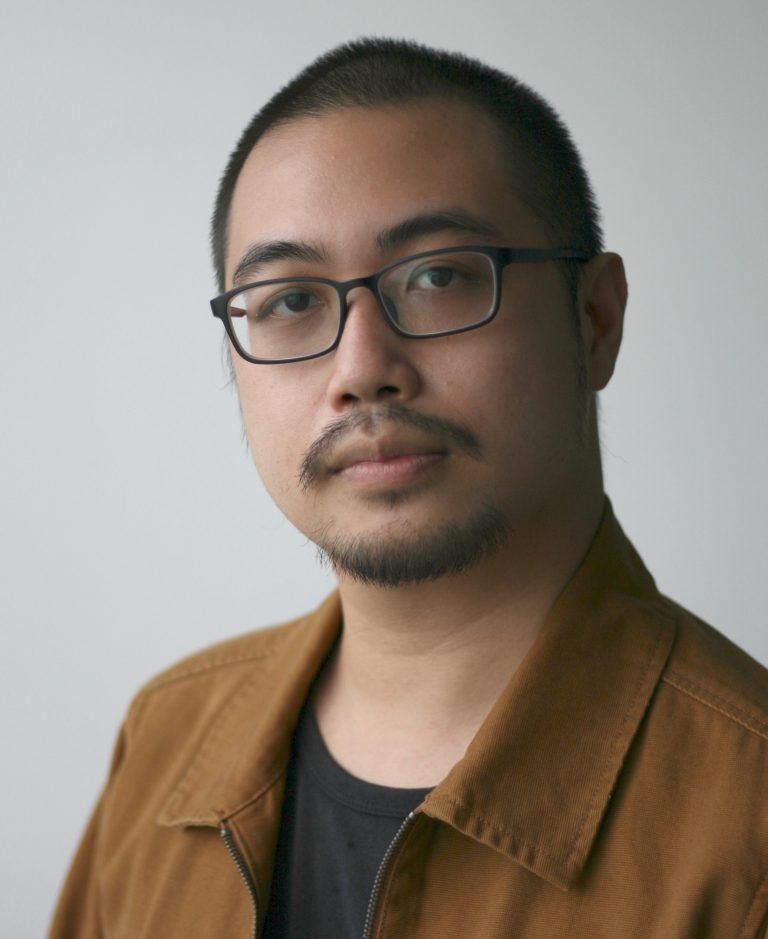After convincing yourself (and those who matter) that studying the arts was the right move for you, you’ve finally obtained your certificate. What’s next? How will you earn your keep as an arts practitioner?
By Deric Ee
Much like the practice itself, finding work in the arts may not always be a straightforward process. Your academic qualifications could get you hired as a creative professional, but nothing is certain in the creative world. After all, times have changed: the idea of Moet & Chandon sponsoring Malaysian artists seems far-fetched in this day and age. Upon speaking to three relative newcomers from different creative fields, we put together a few tips to help new entrants find work in the arts.
Get yourself a world-class internship
Sarawak-born Beatrice Musa, 28, graduated with a New Media Design & Technology degree from Universiti Sains Malaysia (USM) in 2022. Prior to enrolling in the institution’s revered School of The Arts, she held a diploma in graphic design but felt limited by her craft. She didn’t enjoy relying on Adobe’s creative suite to get all her work done.

“I chose to study New Media because it was a very broad topic. I could pursue anything from video animation to art direction, projection mapping, and even web design,” Beatrice explains.
The broad range of skills Beatrice gained during her time at USM made her a perfect match for Kuman Pictures. After watching their award-winning film Roh—Malaysia’s official submission to the 93rd Academy Awards—she requested that USM place her with the production house for her internship. Kuman Pictures immediately put her on the set of their Chinese-language thriller, Die Die Top Student. Upon fulfilling her role as production assistant, Beatrice began receiving more work opportunities. Word even got around about her graphic design prowess, and she was soon contracted as a storyboard artist for an upcoming project.
“What I learned in university made me question if I was truly skilled enough to enter the industry. As far as I knew, the reality for someone with an arts education was uncertainty,” Beatrice recalls. “However, my experience since has also made me realise I want to immerse myself in film production as I get to utilise all of my knowledge and still learn new things.”
Read more: Incubation centre gives leg up to craft makers growing their businesses
Don’t rush, discover your own path
Kakiseni programme coordinator Qusyairi Zazili, 28, pursued a Media Arts degree in 2015 at Multimedia University (MMU) but his passion evolved after he studied anthropology, semiotics and humanities during his final few semesters.
“That was probably the foundation of my interest to delve into the arts in general, as opposed to finding a specific niche to fill,” Qusyairi notes. “After graduating, I worked with non-governmental organisations to engage communities through arts programming—the application of the arts in social work appealed to me.”

In 2018, Qusyairi obtained a Masters in Fine Arts from Birmingham City University. He credits this as an eye-opening experience that showed him how people from different backgrounds could weave their personal experiences into their art. Internet and social media further enhanced his exposure to the possibilities of the arts while expanding his networks.
While he could have settled for professional work in gallery management, curation, heritage conservation, or even become a historian, academician, and researcher, that is not Qusyairi’s desired path for the time being.
“It’s obvious that with a qualification in Fine Art, the most immediate idea one could have is to become a full-time arts practitioner or visual artist. But I wouldn’t recommend anyone creative to limit their activities to a single scope,” he adds.
Read more: Queen Lee on Creative Exploration of the Self and Beyond through Painting and Embroidery
Take a chance and the rest will follow
Multi-disciplinary creative Tarrant Kwok, 32, is known for his spell with Theatrethreesixty and for being the stage manager who could do it all (“but act,” he claims). His career as a stage technician began by chance: in late 2014, Christopher Ling was directing a local run of Adult Child/Dead Child when the designer in charge of visual scoring dropped out, leaving Tarrant an opportunity of a lifetime. He ran with it.
Tarrant does not hold a conventional degree, but rather a series of certifications in theatre from the Association of British Theatre Technicians (ABTT). He earned his Bronze Award for Theatre Technicians in 2017 thanks to the British Council’s one-off attempt to bring the ABTT to Kuala Lumpur. He subsequently travelled to the United Kingdom to pursue their more advanced Silver and Gold Award courses.
“During Theatrethreesixty’s staging of The Pillowman in 2017, we needed a puppet to burn on stage—a hazard which risked burning Enfiniti Academy down,” Tarrant reminisces. “My training afforded me the tools to negotiate with the production team on ways to do this safely, such as by utilising flash paper to create controlled fires.”

While Tarrant is a certified theatre technician, he does not fully-depend on the stage. He claims that Malaysian theatre is a gig industry: a lack of programme density pushes theatre practitioners to diversify their skillset in order to survive.
Read more: Level up! 5 ways to upgrade your artistic skills
“I don’t recommend specialising in a single discipline because we’ve seen how a crisis like the COVID-19 pandemic can wipe out niches,” he observes. “But my multidisciplinary practice—copywriting, production management, content and design for special exhibitions—also affords me the privilege to be selective with projects.”
Beatrice, Qusyairi and Tarrant share one thing in common: all three are multidisciplinary creatives of different degrees. They may be young, but they’re resilient. (Upskilling, rather than reskilling, has proven to be the choice made by creatives facing an industry crisis.)
But should the burden of “employability” be on our artists alone? With his academic background and experience with arts advocacy and policy reform through his work, Qusyairi points out that the state can definitely play a bigger role in helping arts graduates find work.
“Public access to the arts is key, and there are many catalytic initiatives that can be taken up by governments such as educating people about the value of the arts,” he states. “As we’ve seen in the developed world, the state has the power to encourage businesses and corporations to play a more active role in funding the arts, thus developing more opportunities for creatives.”
Deric Ee is a Seremban-born writer and arts manager with a background in theatre, media and placemaking. He loves being around creative people and prides himself on being able to do everything from managing state-funded festivals to fetching coffee on a film set.

